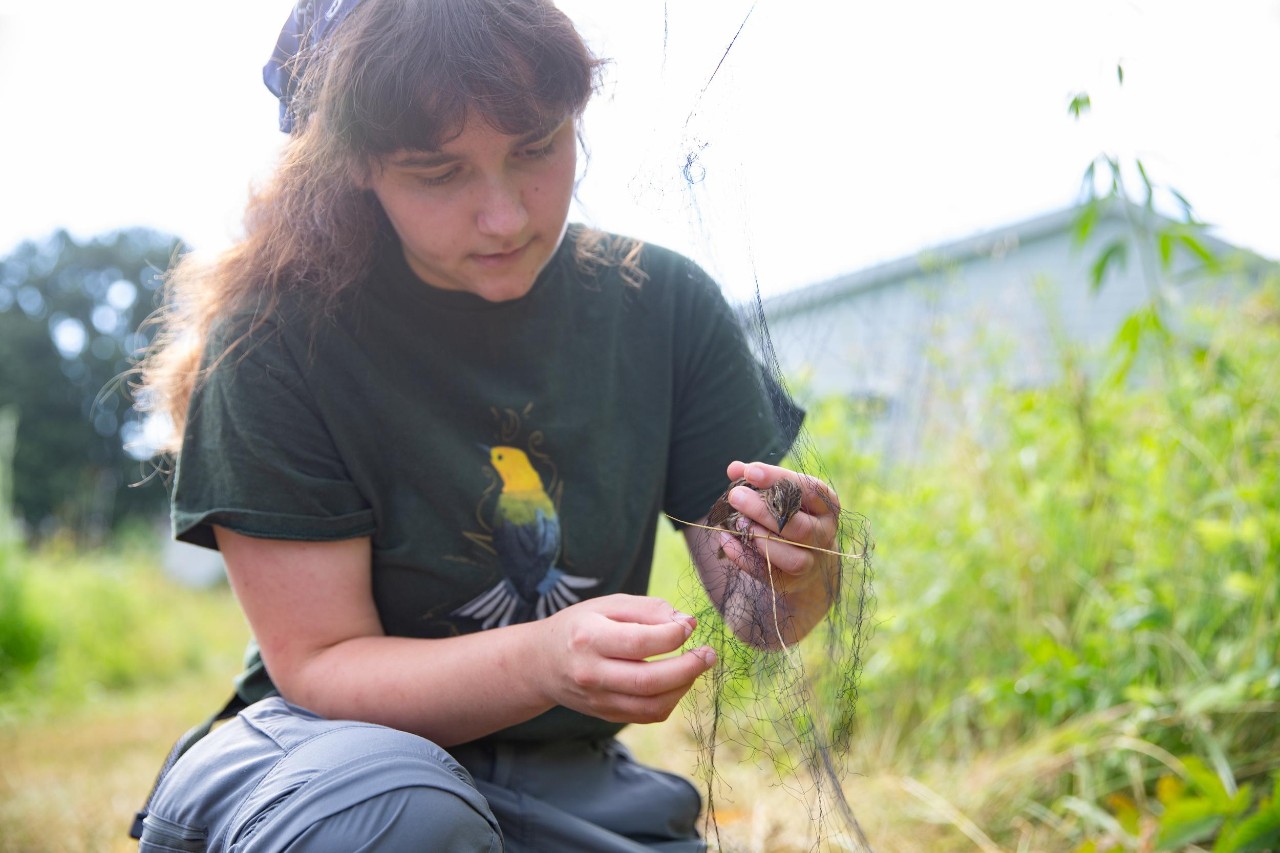
UC ornithologist sounds alarm about loss of Cincinnati bird population
Feral cats, glass windows and loss of habitat are likely culprits, researcher says
WVXU highlighted a long-term research project at the University of Cincinnati that has recorded an alarming decline in bird numbers in Greater Cincinnati.
UC College of Arts and Sciences Professor Ronald Canterbury has been catching and placing numbered bands on birds for more than 35 years to study their migration, habitat needs and population.

Ronald Canterbury. Photo/Andrew Higley/UC Marketing + Brand
He told WVXU that his ongoing study has found that many bird species are in sharp decline, echoing findings by researchers elsewhere that the United States has lost 3 billion birds since 1970.
Each summer Canterbury has set up mist nets a few times a week at places like UC's Center for Field Studies and Great Parks of Hamilton County to catch and band birds. He records data on the species, age, sex, weight and wing lengths of the birds he catches and places a uniquely numbered band on one leg that can help track their migration, age and movements if they are recaptured.
The population trends he has observed are alarming, he said.
“Birds are in big decline,” he told WVXU. “I don't catch nearly as many as I did 20 or 30 years ago. Twenty years ago I would trap 50 to 70 birds (in a day). Nowadays the numbers are more like 10 to 20. Most species are declining, and we know that from many other forms of research.”
Canterbury said there are several likely reasons, including habitat loss, predation by feral cats and glass windows, which kill hundreds of millions of birds each year, according to the U.S. Fish and Wildlife Service.
He said we need to protect more open spaces, not just for birds but for other animals as well.
“You're saving much more than the bird sometimes,” he said. “You might be working on a cerulean warbler, but if you go down the food web, you're going to be saving a white-footed mouse on the ground, an owl that would eat that mouse, insects and all kinds of things.”
Featured image at top: UC Professor Ronald Canterbury's students learn to band birds at UC's Center for Field Studies. Photo/Andrew Higley/UC Marketing + Brand

Naomi Moore holds a common yellowthroat she banded at UC's Center for Field Studies. She came to UC to get bird banding experience from Professor Ronald Canterbury. Photo/Andrew Higley/UC Marketing + Brand
Related Stories
Wired: Is psychedelic therapy bubble about to burst?
September 9, 2022
UC postdoctoral researcher Nese Devenot talks to Wired magazine about challenges facing psychedelic therapies.
Psychedelic research renaissance
August 16, 2022
Psychedelics such as LSD, psilocybin and MDMA are gaining increasing attention in scientific and medical circles because of the potential they hold for treating anxiety disorders and emotional trauma. UC's Nese Devenot explains why psychedelics are seeing a research renaissance.
NatGeo: UC discoveries featured in new series on ancient Maya
March 25, 2024
UC's research on the ancient Maya in Tikal is featured in a new National Geographic series called "The Rise and Fall of the Maya."
